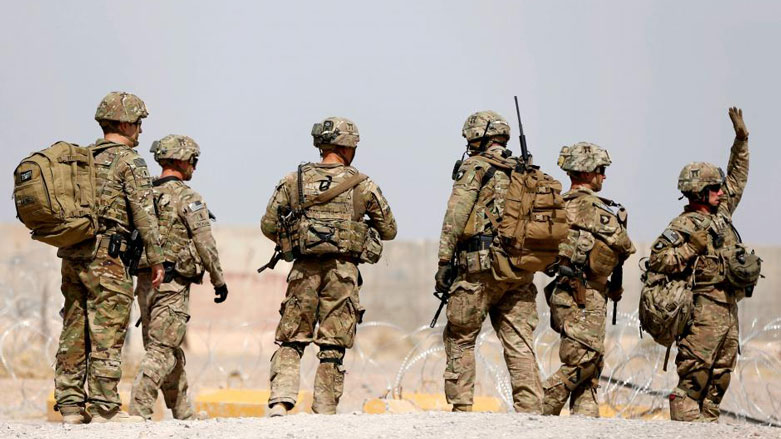New US Afghan policy to include pressure on Pakistan

WASHINGTON DC, United States (Kurdistan24) – On Tuesday, US Secretary of State Rex Tillerson briefed the State Department press corps on the Trump administration’s Afghan policy, which had been under review for the past seven months.
He emphasized that it was based on a strategic overview, taking into account the positions of Pakistan and India and mobilizing those countries to “bring pressure to bear on the situation in Afghanistan.”
More than its predecessors in the sixteen-year long war, the Trump administration will focus on obliging Pakistan to end its support for terrorism.
Tillerson emphasized that the US and Pakistan “historically had very good relations.” But there has been a “real erosion of trust,” because terrorist organizations are “given safe haven” inside Pakistan, “to plan and carry out attacks against US servicemen, US officials, and disrupt peace efforts inside Afghanistan.”
Indeed, some prominent Americans have called for just this. New York Times correspondent, Carlotta Gall, wrote a book on the subject, entitled The Wrong Enemy: America in Afghanistan, 2001-14.”
The title comes from Richard C. Holbrooke, the Obama administration’s special envoy to Pakistan and Afghanistan until his untimely death in 2010, who warned, “We may be fighting the wrong enemy in the wrong country.”
Zalmay Khalilzad, ambassador to Iraq and Afghanistan under George W. Bush, has repeatedly made a similar point. In his memoirs, The Envoy, Khalilzad went even further than Tillerson in describing Islamabad’s support for the Taliban and explaining that in the mid-1990s, Pakistani intelligence already began “funding, supplying, and training” them—not just providing a safe haven.
Khalilzad expressed his frustration with the Bush administration’s failure to acknowledge Pakistan’s role in supporting the Taliban, while the Obama administration never really addressed the problem, even if key figures, like Holbrooke, recognized it.
Thus, the Trump administration is really the first of three successive presidencies in America’s longest war to identify Pakistan—loudly and clearly—as a major part of the problem.
Asked what leverage the US has with Pakistan, Tillerson cited “the amount of aid we give them,” as well as “their status as a non-NATO alliance partner.”
From 2007 until 2015, Pakistan received at least $1 billion in US aid annually, with that figure peaking at over $3.5 billion in 2011. Congressional anger at Pakistan’s support for terrorism helped drive it down to somewhat less than $1 billion in 2016—still a considerable sum.
Other forms of potential US pressure emerged during the press conference. Asked if the Trump administration might attack terrorist targets in Pakistan, Tillerson declined to answer directly, but said, “The President has been clear that we are going to protect American troops and servicemen.”
“We are going to attack terrorists wherever they live, and we have put people on notice that if you are harboring and providing safe haven to terrorists, be warned,” he added.
However, the Secretary was less clear about Russia. The top US commander in Afghanistan, Gen. John Nicholson, has charged that Russia is providing weapons to the Taliban.
When asked about that, Tillerson replied, “To the extent Russia is supplying arms to the Taliban,” it violates “international norms” and “UN Security Council norms.”
“We would object to that and call Russia’s attention to that,” he added.
The response scarcely seems like it would have much impact in Moscow.
Tillerson also explained that valuable lessons have been learned in the fight against the Islamic State, and they will be applied in Afghanistan. They include empowering commanders on the ground to make decisions and not micromanaging from Washington.
Editing by G.H. Renaud
